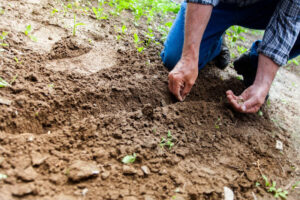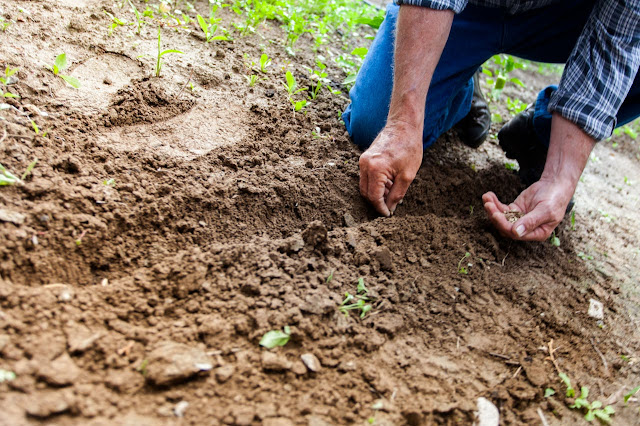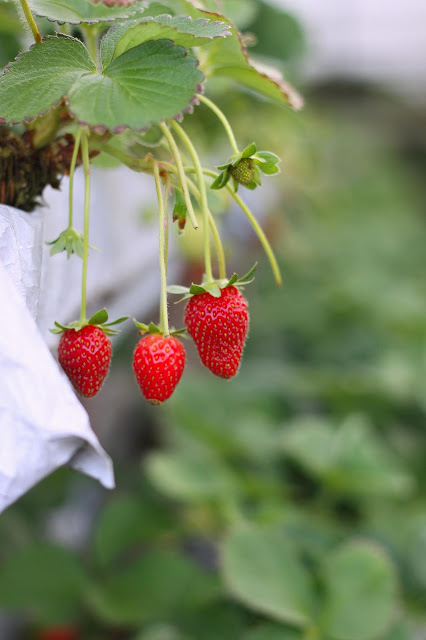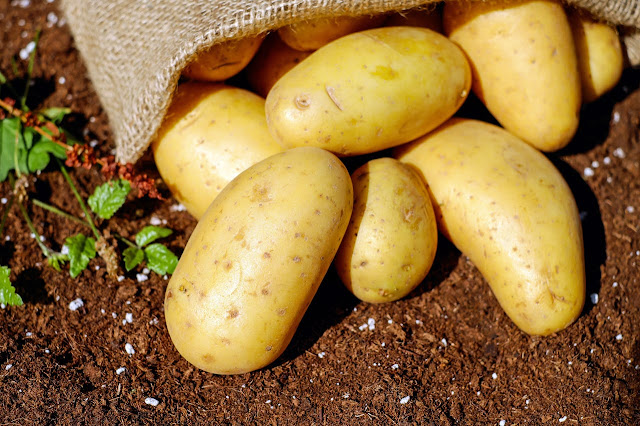Creating a vertical garden from a pallet is a fantastic way to maximize your green space, especially if you’re dealing with limited room or want to add a touch of nature to a bare wall. In this step-by-step guide, we’ll explore the process of transforming a simple pallet into a thriving vertical garden. Let’s dive into the exciting world of pallet gardening!
Table of Contents
- Introduction
- 1.1 Why Choose a Vertical Garden?
- 1.2 Benefits of Using a Pallet
- Materials Needed
- 2.1 Pallet Selection
- 2.2 Tools and Equipment
- 2.3 Soil and Plant Selection
- Preparing the Pallet
- 3.1 Cleaning and Sanding
- 3.2 Adding a Backing
- Designing Your Garden
- 4.1 Planning the Layout
- 4.2 Considering Plant Arrangement
- Attaching the Planters
- 5.1 Building Planter Boxes
- 5.2 Securing the Planters to the Pallet
- Planting Your Garden
- 6.1 Soil Preparation
- 6.2 Planting Techniques
- 6.3 Caring for Your Vertical Garden
- Watering System
- 7.1 DIY Drip Irrigation
- 7.2 Watering Tips
- Maintaining Your Vertical Garden
- 8.1 Regular Inspections
- 8.2 Pruning and Trimming
- Troubleshooting Common Issues
- 9.1 Dealing with Pests
- 9.2 Addressing Overwatering or Underwatering
- Vertical Garden Ideas and Inspiration
- 10.1 Herb Gardens
- 10.2 Succulent Displays
- 10.3 Flower Cascades
- Environmental Considerations
- 11.1 Sustainability Practices
- 11.2 Upcycling and Recycling
- Showcasing Your Vertical Garden
- 12.1 Outdoor Placement
- 12.2 Indoor Options
- Benefits of Vertical Gardening
- 13.1 Space Efficiency
- 13.2 Aesthetic Appeal
- Challenges and Solutions
- 14.1 Structural Integrity
- 14.2 Seasonal Adaptations
- Conclusion
How to Make a Vertical Garden from a Pallet
Vertical gardening is a creative and space-efficient way to bring greenery into your life. By repurposing a pallet, you not only contribute to sustainable practices but also unleash your artistic side. To get started, gather the materials mentioned below and follow this comprehensive guide.
1. Introduction
1.1 Why Choose a Vertical Garden?
Vertical gardens serve as a perfect solution for those with limited space. They bring nature into urban environments, providing a breath of fresh air and an aesthetic boost.
1.2 Benefits of Using a Pallet
Pallets offer a sturdy foundation for your vertical garden. They are readily available, cost-effective, and can be easily transformed into a customizable planter.
2. Materials Needed
2.1 Pallet Selection
Choose a pallet in good condition, ensuring it’s not treated with harmful chemicals. Opt for heat-treated (HT) pallets for safety.
2.2 Tools and Equipment
Gather basic tools such as a saw, drill, and sandpaper. You’ll also need screws, nails, and a staple gun for assembly.
2.3 Soil and Plant Selection
Select a high-quality potting mix and plants suitable for vertical gardening. Consider the amount of sunlight the chosen location receives.
3. Preparing the Pallet
3.1 Cleaning and Sanding
Clean the pallet thoroughly, removing any dirt or debris. Sand the surfaces to create a smooth finish.
3.2 Adding a Backing
To prevent soil from falling through the gaps, add a backing to the pallet. Use landscaping fabric or plywood for this purpose.
4. Designing Your Garden
4.1 Planning the Layout
Sketch the layout of your vertical garden. Consider the placement of planters and leave enough space for growth.
4.2 Considering Plant Arrangement
Think about the types of plants you want to include and their growth habits. Place taller plants towards the top for an attractive cascade effect.
5. Attaching the Planters
5.1 Building Planter Boxes
Construct planter boxes using leftover pallet wood or other suitable materials. Ensure they have drainage holes.
5.2 Securing the Planters to the Pallet
Attach the planter boxes to the pallet securely, making sure they are evenly spaced and well-supported.
6. Planting Your Garden
6.1 Soil Preparation
Fill the planters with a well-draining potting mix. Ensure the soil is evenly distributed for uniform plant growth.
6.2 Planting Techniques
Plant your chosen greenery, paying attention to spacing and depth requirements. Water the plants thoroughly after planting.
6.3 Caring for Your Vertical Garden
Regularly check the soil moisture and provide additional water as needed. Fertilize your plants according to their specific requirements.
7. Watering System
7.1 DIY Drip Irrigation
Consider installing a simple drip irrigation system for efficient watering. This ensures each plant receives adequate moisture.
7.2 Watering Tips
Water your vertical garden early in the morning or late in the afternoon to minimize water loss through evaporation.
8. Maintaining Your Vertical Garden
8.1 Regular Inspections
Inspect your garden regularly for signs of pests, diseases, or nutrient deficiencies. Address any issues promptly.
8.2 Pruning and Trimming
Keep your vertical garden tidy by pruning and trimming as needed. This encourages healthy growth and maintains the desired shape.
9. Troubleshooting Common Issues
9.1 Dealing with Pests
Use natural pest control methods like neem oil or introduce beneficial insects to combat pest infestations.
9.2 Addressing Overwatering or Underwatering
Adjust your watering schedule based on the specific needs of your plants. Consider factors like humidity and temperature.
10. Vertical Garden Ideas and Inspiration
10.1 Herb Gardens
Create a vertical herb garden for fresh ingredients at your fingertips.
10.2 Succulent Displays
Explore the beauty of succulents with a vertical display that requires minimal maintenance.
10.3 Flower Cascades
Design a visually stunning flower cascade using a variety of colorful blooms.
11. Environmental Considerations
11.1 Sustainability Practices
Contribute to sustainability by using recycled or upcycled materials for your vertical garden.
11.2 Upcycling and Recycling
Explore creative ways to repurpose items for your garden, minimizing waste.
12. Showcasing Your Vertical Garden
12.1 Outdoor Placement
Choose an outdoor location that receives the right amount of sunlight for your plants.
12.2 Indoor Options
Adorn your indoor spaces with a vertical garden, bringing a touch of nature inside.
13. Benefits of Vertical Gardening
13.1 Space Efficiency
Utilize vertical space efficiently, making the most of small or cramped areas.
13.2 Aesthetic Appeal
Enhance the visual appeal of your surroundings with a vibrant and flourishing vertical garden.
14. Challenges and Solutions
14.1 Structural Integrity
Ensure the structural integrity of your pallet garden by using sturdy materials and proper construction techniques.
14.2 Seasonal Adaptations
Adapt your vertical garden to changing seasons by choosing plants that thrive in different weather conditions.
15. Conclusion
Creating a vertical garden from a pallet is a fulfilling and eco-friendly project. With careful planning and attention to detail, you can enjoy a thriving garden in even the smallest of spaces. Experiment with different plant combinations and designs to make your vertical garden a true reflection of your style.
FAQs:
- Can I use any type of pallet for this project?
- While you can use various pallets, it’s safest to choose heat-treated (HT) pallets to avoid harmful chemicals.
- What plants are suitable for a vertical garden?
- Herbs, succulents, and trailing flowers are excellent choices. Consider the sunlight conditions in your chosen location.
- How often should I water my vertical garden?
- The watering frequency depends on factors like plant types, climate, and soil moisture. Check the soil regularly and water when needed.
- Can I place my vertical garden indoors?
- Absolutely! Choose suitable plants for indoor conditions, and ensure they receive adequate sunlight.
- Do I need a green thumb to maintain a vertical garden?
- Not at all! Vertical gardens are adaptable, and with basic plant care knowledge, anyone can enjoy a flourishing green space.
In conclusion, making a vertical garden from a pallet is a rewarding endeavor that adds beauty and greenery to any space. So, roll up your sleeves, gather your materials, and embark on this creative journey!




